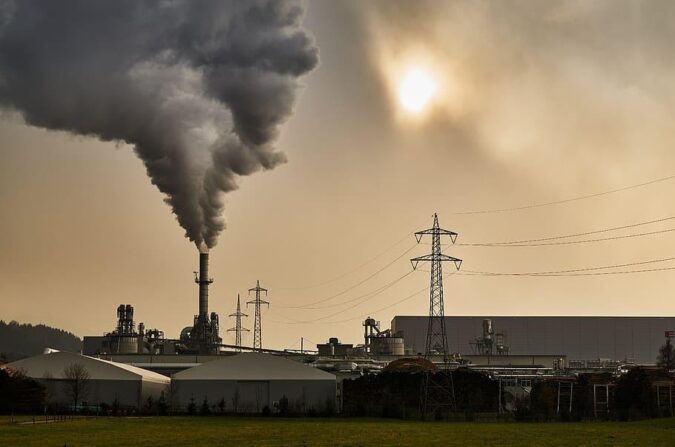Air pollution is the biggest environmental threat to health, with 36,000 deaths a year just in the UK alone attributed to exposure, with many more experiencing a lower quality of life due to toxic air. [1]
Figure 1: Kitzbuhel, Austria
A huge impact on air pollution comes from an indoor widespread, which takes many forms, including:
- Tiny particles which are emitted when we cook or clean.
- Spores released by mould when it is damp.
- Chemicals which are embedded in our furniture. [2]
The crisis with air pollution demands urgent coordinated effort from:
- Policymakers
- Public services
- Businesses
- Individuals.
This is crucial to making the collective and individual changes to help reduce air pollution. A significant move towards making improvements to the crisis at hand has been introduced by the President Biden’s American Jobs Plan. The plan involves investments in electric vehicles (EV) infrastructure. Electric vehicles are a great investment for consumers and are a significant move towards battling air pollution. However, consumers are still worried about the practicality of using EV cars outside of cities, due to limited charging stations, which President Biden’s plan covers. [3]
Issues Arising From Air Pollution
While it is clear that air pollution has significant impact on people’s health, it is important to distinguish some of the direct impacts it can have:
- Small particles that are inhaled can travel to the lungs and cause problems.
- Studies suggest that indoor pollution is linked with an increased risk of certain respiratory problems, such as asthma and bronchitis.
A study by Columbia University’s Mailman School of Public Health analysed the impact of air pollution on children, with the findings showing that children exposed to elevated levels of air pollution may be more likely to have poor inhibitory control during late childhood and poor academic skills in early adolescence, including:
- Spelling
- Reading comprehension
- Math skills.
The study identified that difficulty with inhibition in late childhood was found to be a precursor to later air pollution-related academic problems. Interventions that target inhibitory control might improve outcomes. [4]
What Has Been Done So Far?
Various governments, councils and organisations across the globe have been making progressive steps towards tackling the crisis with air pollution. Some examples include the work being done by Camden Council in the UK, the Delhi Cabinet in India, and the Royal College of Physicians in the UK.
Camden Council and hospitals in the borough are taking actions to improve air quality and protect health. Camden is also the first local authority to adopt the stringent World Health Organisation air quality standards. Meanwhile, the Great Ormond Street Hospital developed the first Clean Air Hospital Framework with Global Action Plan (the charity behind Clean Air Day). This framework for air quality improvement is now being rolled out at the Royal Free Hospital and University College London Hospitals (UCLH). [1]
The Delhi Cabinet approved a real-time source apportionment study with an aim to tackle air pollution in the city. The project will aim to identify sources of pollution on a real-time basis to initiate mitigation measures on a near real-time basis.
The Delhi Environment Minister, Gopal Rai spoke on the topic, advising that “the real-time source apportionment project will help identify the factors responsible for the spike in air pollution at any particular spot in Delhi. It will help understand the real-time impact of various pollution sources like vehicles, dust, biomass burning, stubble burning, and emissions from industries. Based on the results, the Delhi government will take necessary actions to curb the sources of pollution,” It is also worth noting that the government advised the technology to carry out real-time source apportionment of pollution has not been implemented in any other city in the country. [5]
Meanwhile, the Royal College of Physicians will review the medial curriculum to make sure physicians have a better understanding of the impact of air pollution on people’s health. The announcement comes after the coroner who made the first UK ruling giving toxic air as a cause of death called on the government and doctors’ training bodies to take urgent action to cut the risk of deaths. [6]
How Can We Improve the Current Situation?
There are many ways in which air pollution can be tackled at home on a daily basis, as part of our everyday lives. As discussed in an article by Rachel Brown from DIY Garden, plants have many benefits when it comes to air pollution. Some of this include:
- “Green walls (where vegetation grows vertically), are useful for capturing ultra-fine and fine particles of pollutants.
- Green screens (consisting of steel or plastic mesh, on which climber vegetation grows), have been shown in initial research to reduce the concentration of coarse particles by 41%, and cut nitrogen dioxide concentrations by 53%.
- Green roofs were shown in modelling studies to reduce air pollution by 30-57%. This variation depended on external factors such as the position of the roof, the wind, and the characteristics of the plant and its leaves.” To read more about the plantation which can help with air pollution, follow the link for the full article: https://diygarden.co.uk/gardening/improve-air-quality/. [7]
There are many in-house solutions to air pollution also, including:
- Cooking with electricity, rather than gas. This is because gas appliances generate carbon monoxide and nitrogen dioxide.
- Limit using log burners, as open fires and older wood-burning stoves emit a mixture of gases and tiny particles.
- Limit use of candles, these can also impact air quality, and have been found to be the main source of indoor pollution. [2]
A great way of getting involved in the positive move of tackling air pollution is to simply raise public awareness, especially about the ways in which people can adapt their home activities in order to improve their air quality, with very simple and yet effective tasks.
About Pager Power
Pager Power undertakes technical assessments for developers of renewable energy projects and tall buildings. For more information about what we do, please get in touch.
References
[1] Camden Council, (July 2021), Joint letter outlines Camden’s plans to reduce air pollution, Air Quality News.
[2] Pilcher, H. (July 2021), A scientist’s guide to life: How to protect yourself from indoor air pollution, Science Focus.
[3] Gerber, T. (July 2021), Opinion: Electric vehicles can help clean Colorado’s air — by preventing wildfires, The Colorado Sun.
[4] Columbia University’s Mailman School of Public Health (July 2021), Air pollution exposure linked to poor academics in childhood, Science Daily.
[5] Special Correspondent, (July 2021), Cabinet okays real-time source study to combat air pollution, The Hindu. 3
[6] The BMJ, (June 2021), Physicians to be better trained on effects of air pollution on health, says college, The BMJ.
[7] Brown, R. (Apr, 2021), Air Pollution: How To Create an ‘Air Quality’ Garden, DIY Garden.
[8] Richard Keil Photography from PxFuel. Last accesses on 3 Aug 2021. Available at: https://www.pxfuel.com/en/free-photo-xgvwi.




